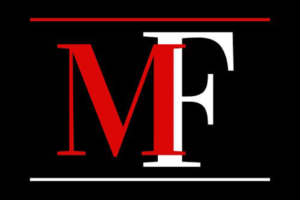Brief History of Facebook
Facebook is a social media platform owned by Meta, a U.S.-based company. It was created in 2004 by Mark Zuckerberg and his Harvard roommates: Eduardo Saverin, Andrew McCollum, Dustin Moskovitz, and Chris Hughes.
The name “Facebook” comes from the photo directories given to students at American universities. Originally available only to Harvard students, it later expanded to other universities and, by 2006, opened to anyone aged 13 or older, with a few exceptions.
Facebook’s Growth and Popularity
As of December 2022, Facebook had nearly 3 billion active users. In October 2023, it was the third-most-visited website in the world. Additionally, it was the most downloaded mobile app during the 2010s. Users can access Facebook from devices like computers, tablets, and smartphones.
Features of Facebook
After signing up, users can create a personal profile and share content, such as text, photos, and videos. They can post to friends or publicly, depending on their privacy settings. Facebook also offers features like Messenger for chatting, groups for shared interests, and notifications about friends’ activities.
Controversies and Criticisms
Despite its success, Facebook has been involved in several controversies. These include concerns over privacy, such as the Cambridge Analytica scandal, and issues like political manipulation, addiction, fake news, and hate speech. Critics argue that Facebook has allowed harmful content to spread and may have inflated its user numbers to attract advertisers.
Facebook Product Line
Facebook (Core Platform)
Facebook is the original social networking service that lets users connect, share content, and communicate. It is still the main product of Meta and generates significant revenue through advertising.
WhatsApp is a messaging app that Facebook acquired in 2014. It is known for its strong privacy protection, including end-to-end encryption. WhatsApp is also growing its business services, offering APIs and payment options.
Instagram is a photo and video-sharing platform that was bought by Facebook in 2012. It has grown rapidly and is now one of the most popular platforms for influencers and advertisers.
Oculus
Oculus is Meta’s division focused on virtual reality (VR) and augmented reality (AR). It creates both the hardware and software needed for immersive experiences and plays a key role in Meta’s plans for the metaverse.
Messenger
Messenger started as Facebook’s chat feature but is now a separate app. It lets users send messages, make video calls, and even play games, all while being linked to Facebook.
Facebook Marketplace
Facebook Marketplace is an e-commerce platform built into the Facebook app. It allows users to buy and sell items locally.
Facebook Watch
Facebook Watch is a video-on-demand service similar to YouTube. It offers both original shows and user-generated videos for viewers to watch.
BCG Matrix of Facebook

1. Stars in Facebook BCG Matrix
Instagram has grown quickly and continues to expand its user base. It is especially popular with younger users and influencers. Instagram keeps innovating, such as adding Reels to compete with TikTok, which helps it maintain strong growth. Its advertising revenue is also increasing, making it a key asset for Facebook.
WhatsApp has a large and growing user base, especially in global markets. Its strong privacy features, like end-to-end encryption, and easy-to-use interface make it a top choice for messaging. The addition of business tools and payment features shows WhatsApp’s potential for more revenue, supporting its rapid growth and strong market position.
Facebook Marketplace
Facebook Marketplace has seen strong growth, especially as e-commerce continues to rise. It has a solid market share and benefits from being part of the Facebook app, giving it access to a large user base. With strong growth prospects, Facebook Marketplace is considered a star in Facebook’s product lineup.
2. Cash Cows in Facebook BCG Matrix
Facebook (Core Platform)
Facebook remains a major player in social media with a large user base and strong market share. However, its growth has slowed down due to increased competition, especially from newer platforms like TikTok. Despite this, Facebook still generates a lot of revenue from advertising, making it a dependable source of income for the company.
Messenger
Messenger has a large user base and is well-integrated with Facebook. Although its growth is slower compared to apps like WhatsApp, it still holds a strong market share. Messenger generates steady revenue through ads and in-app purchases, making it another reliable income source for Facebook.
3. Question Marks in Facebook BCG Matrix
Oculus
Oculus operates in the fast-growing virtual reality (VR) and augmented reality (AR) markets. However, this market is still uncertain, with a lot of potential and risks. Oculus has strong products and brand recognition, but its market share is still growing. The success of Oculus depends on how widely VR and AR technologies are adopted, so it remains a question mark in Facebook’s portfolio.
4. Dogs in Facebook BCG Matrix
Facebook Watch
Facebook Watch has struggled to compete with established video platforms like YouTube and Netflix. Its growth has been limited, and it faces tough competition. Because of this, Facebook Watch is considered a “dog” in the BCG matrix, meaning it has low growth potential.
Also explore BCG matrix for NVIDIA
